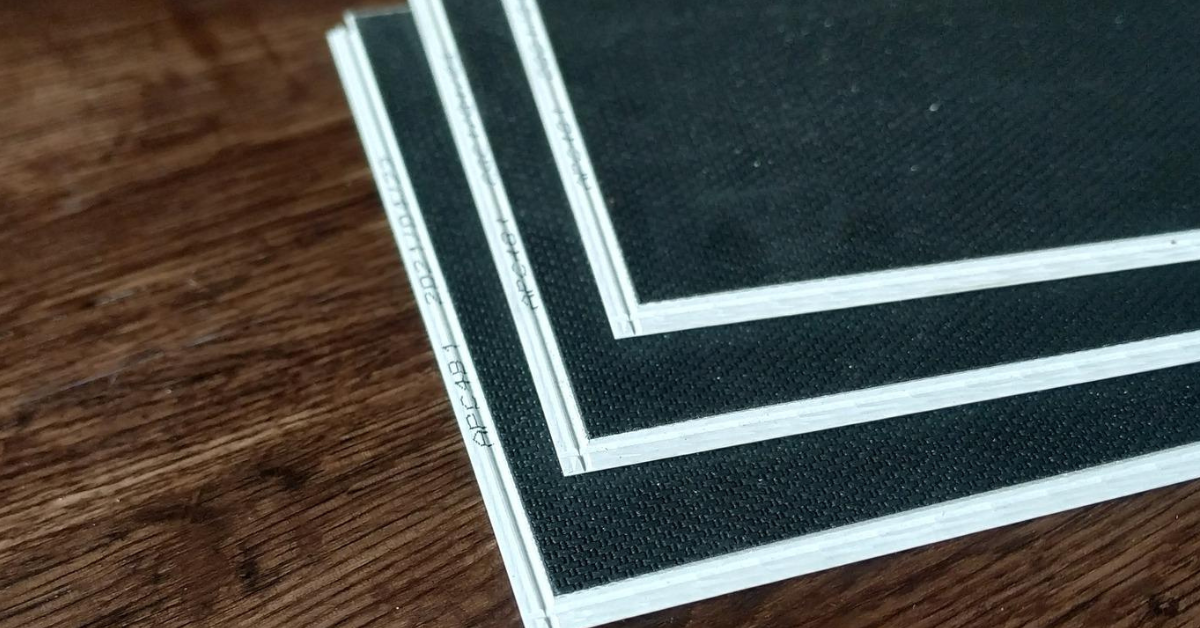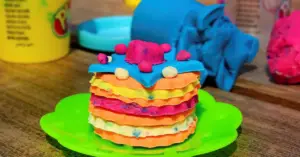Vinyl flooring is a popular option for those redecorating their home. Although it is not the most eco-friendly flooring material available, it provides a fairly inexpensive alternative and will last a long time. But what about when it is damaged or needs replaced due to wear-and-tear? Can it be recycled? Vinyl flooring can, technically, be recycled. But it largely depends where you live and what facilities are available in your area. It is, unfortunately, not as simple as throwing it in the curbside bin either. Here we will take a closer look…
Firstly, what is vinyl flooring made of?
Knowing what something is made from gives us a good starting point when considering its recyclability.
Vinyl flooring is a layered synthetic flooring. It can contain a variety of different materials, including plastics, and comes in a variety of different formats to suit the look of your home. Unfortunately, due to being a human-created material it will not biodegrade and return to nature. Recycling it in some way is vital to ensure that it does not lie in landfill for hundreds of years to come.
Are vinyl and linoleum the same thing?
Often people think that vinyl flooring and linoleum are the same thing. Despite sharing some commonalities (water-resistant, durable, inexpensive…), they are made from vastly different materials. Whilst vinyl flooring is made from synthetic materials, linoleum is made from natural ones. The specific type will vary from manufacturer to manufacturer but can include linseed oil, cork and jute. Linoleum is, technically, compostable!
From here on in, in this article we are just talking about vinyl flooring – not linoleum!
So, can you recycle vinyl flooring?
Unfortunately, your vinyl floor won’t last forever, even with the proper maintenance. Factors such as quality, thickness and regularity of wear play a role in its lifespan. When its time is up, you might think that vinyl flooring is easily recyclable. After all, it often contains plastics and many plastic items are suitable for recycling.
However, one of the things that makes vinyl so flexible as a flooring option makes it a nightmare when it comes to recycling – its multiple layers. Any item made with different materials causes havoc for standard recycling centers. They don’t have the resources to separate the different materials so they are not able to offer this service. The variety of materials and different compositions between brands also present problems. The same goes for lots of items (including squeezable toothpaste tubes and multiple material coffee pods), not just vinyl flooring.
In the world of sustainability, innovators work around the clock to ensure that we use natures resources in the most efficient ways we can. This is no different in the vinyl flooring industry. Thankfully, there are some schemes available that allow vinyl flooring to be recycled to form other products, including new flooring.
Recofloor take-back scheme
The initiatives available to recycle vinyl will be dependent on where you live and what options are available in the area. Recofloor operate a vinyl flooring ‘take-back’ scheme in the U.K collecting materials from offcuts to uplifted tiles. By 2022, they hit the remarkable milestone of collecting 6000 tonnes of vinyl flooring, diverting it from landfill and saving businesses money at the same time. From here, they recycle the offcuts into brand-new flooring and the uplifted vinyl into other items such as traffic cones. It should be noted that it seems to only be available to contractors and distributors at present.
Tarkett ReStart programme
Tarkett have been particularly innovative in their solution. They have been able to collect and recycle old flooring for many years – between 2010 and 2018 they collected over 100,000 tonnes across Europe and North America. However, adhesives on used vinyl floor present significant problems when recycling used vinyl flooring. They developed a system whereby post-use vinyl flooring can be cleaned and converted into vinyl granules that can be integrated into new flooring. It retains its quality too, it performs to the same standard as the virgin materials – but without the environmental impact. At the time of writing, this is still in the pilot phase – the process still needs tweaked and logistical elements finalized. However, this represents a significant breakthrough.
With these sorts of solutions becoming increasingly available, check out what is available in your local area.
The bottom line
Vinyl flooring – not to be confused with linoleum – is not suitable for recycling at the curbside. However, that does not mean that the only option is the trash. Entrepreneurs, scientists and innovators are quickly finding solutions to the issue of recycling vinyl flooring. Your old floor could end up in anything, from brand new flooring to traffic cones. It will require a bit more effort than simply popping it in the curbside collection. However, VinylPlus estimate that every tonne of recovered vinyl saves two tonnes of carbon emissions – the extra effort is worth it.







